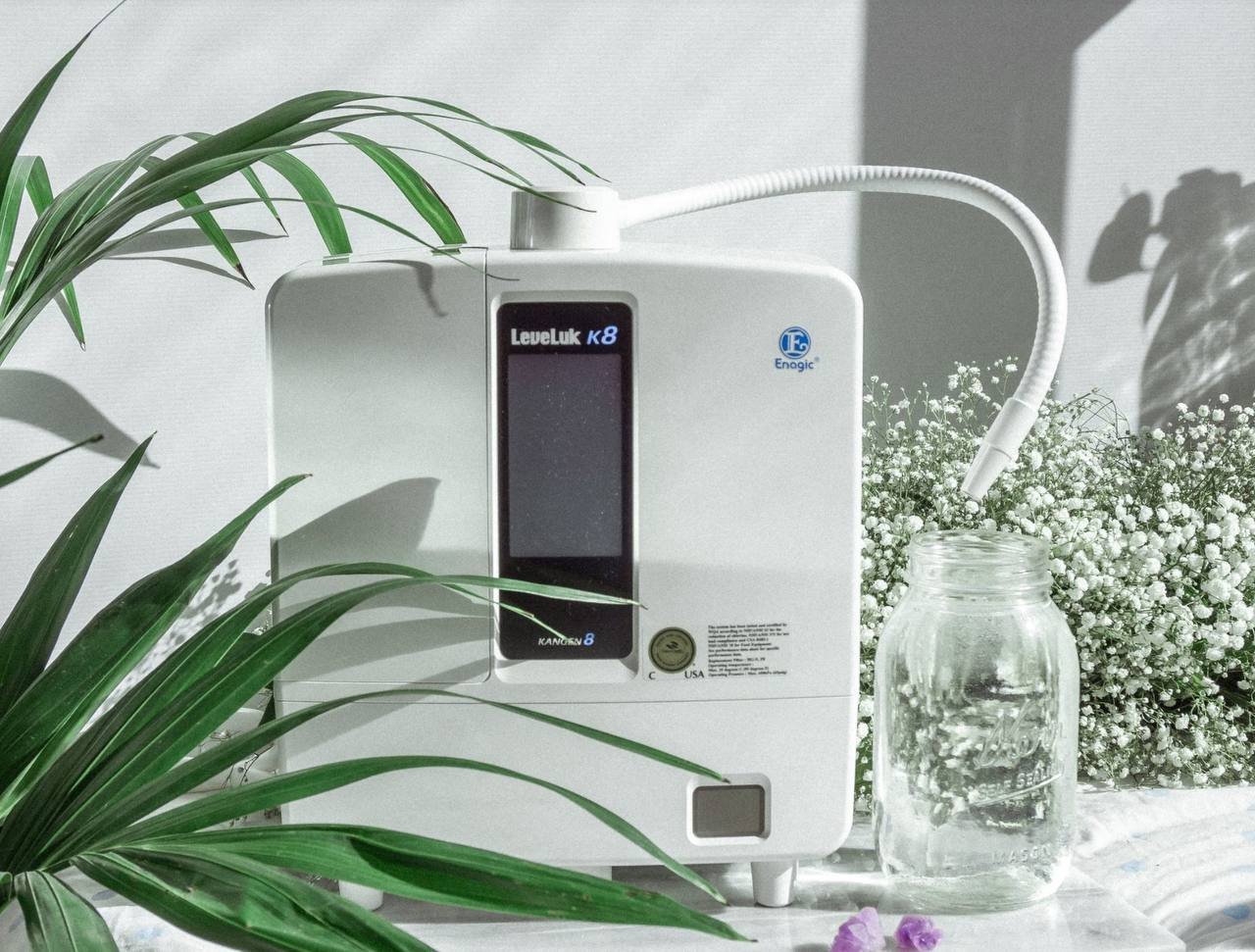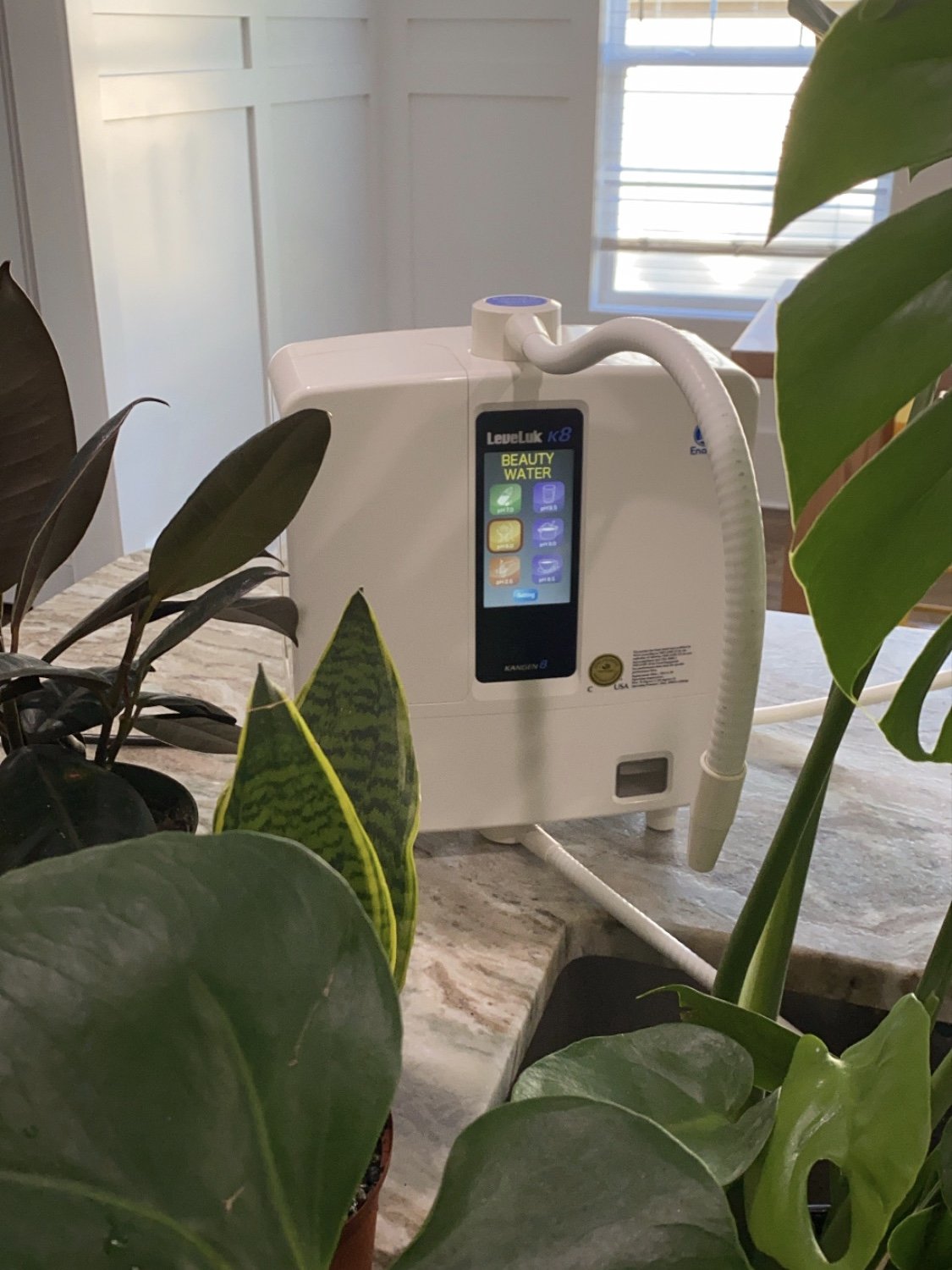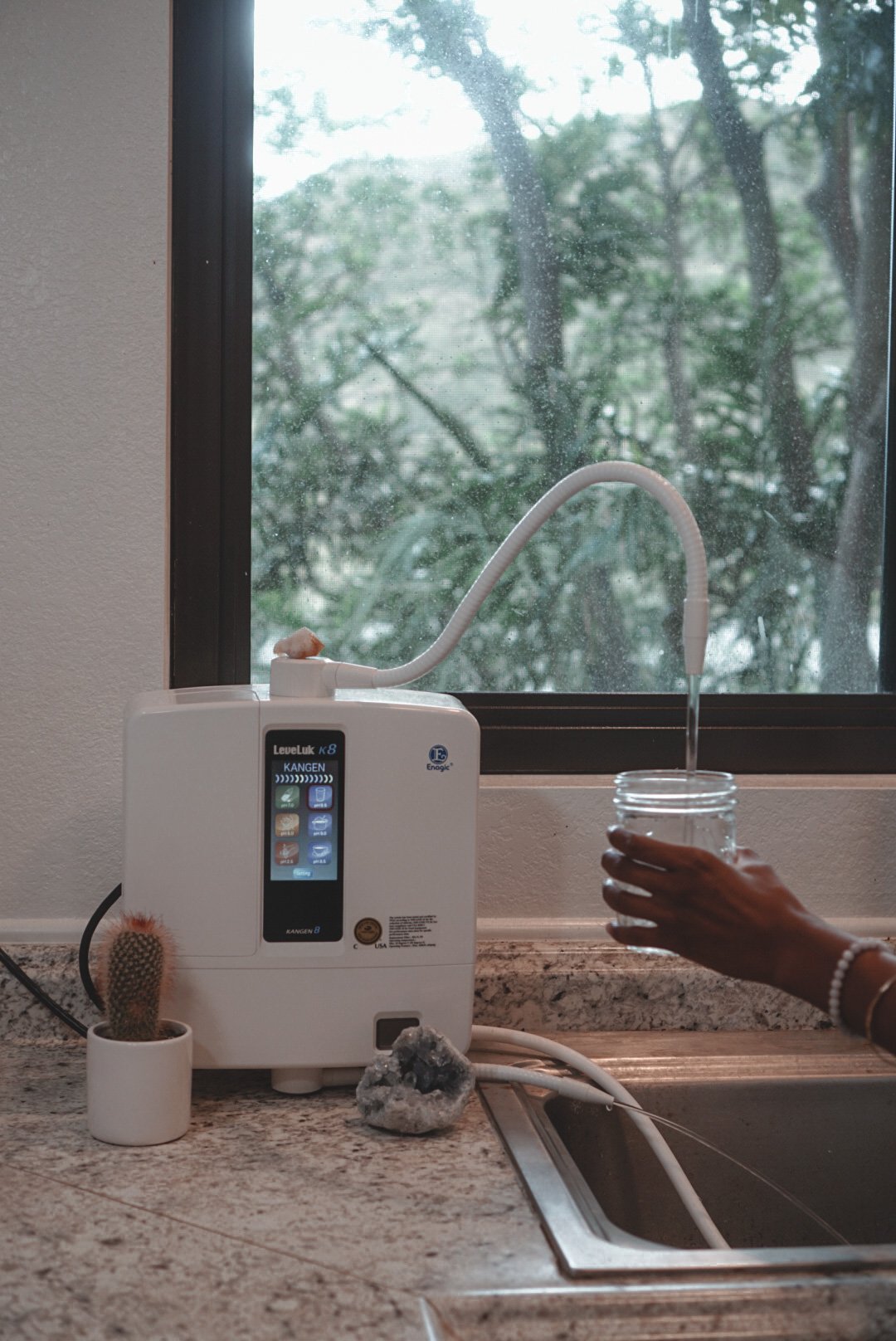Welcome To Kangen Water 💧
Welcome To Kangen Water 💧
Join Us in Creating a Brighter, Healthier Future for All!!!
By purchasing Kangen Water or becoming a distributor, you're not just investing in your own health and well-being – you're also making a meaningful difference in the lives of nurses and newly graduated nurses struggling with mental health challenges.
Our commitment to supporting mental health for students and newly graduated nurses means that the commission of every Kangen Water sale goes directly towards funding our Nurses Love Their Young non-profit efforts.
By purchasing Kangen Water or joining our community as a Kangen Water distributor, you're gaining access to a revolutionary product that can transform lives. You become a vital part of our mission to provide essential mental health resources and support for nursing students and nurses on the front lines of healthcare. And as a distributor you'll receive everything you need to personally empower yourself to build your own business, unlocking a path to both personal growth and financial freedom!
Together, we can make a real impact and ensure that student nurses and newly graduated nurses have the support they need to thrive both personally and professionally.
What is Kangen Water?
Kangen Water is more than just water; it's a revolutionary approach to hydration.
With Kangen Water, you're not just drinking water – you're experiencing a whole new level of hydration.
Our cutting-edge ionization technology infuses water with beneficial alkaline minerals and antioxidant properties, creating a refreshing beverage that nourishes your body from the inside out.
Kangen Water Offers a Multitude of
Benefits
That Set it Apart as a Superior Hydration Choice
Optimal Hydration: Kangen Water's unique alkaline properties promote superior hydration by helping to balance the body's pH levels, ensuring cells are adequately hydrated and functioning optimally.
Antioxidant-Rich: Kangen Water is infused with powerful antioxidants, helping to neutralize harmful free radicals in the body, reduce oxidative stress, and support overall health and vitality.
Detoxification: By providing a clean and pure source of hydration, Kangen Water supports the body's natural detoxification processes, aiding in the removal of toxins and promoting overall wellness.
Improved Digestion: The alkaline nature of Kangen Water can help soothe digestive issues and promote a healthy gut environment, leading to improved digestion and nutrient absorption.
Enhanced Energy: Proper hydration with Kangen Water can boost energy levels, reduce fatigue, and enhance overall vitality, helping you feel more energized and productive throughout the day.
Alkaline Balance: Kangen Water helps to alkalize the body, counteracting the acidity that can result from poor diet and lifestyle choices, and promoting a more balanced and alkaline internal environment.
Environmental Sustainability: By choosing Kangen Water, you're opting for a sustainable hydration solution that reduces plastic waste and the environmental impact associated with disposable bottled water.
Overall, Kangen Water Offers a Holistic Approach to Hydration and Wellness, Providing a Refreshing, Clean, and Nourishing Source of Water that Supports Your Body's Natural Functions and Helps You Thrive.
Chemical Contaminants in Tap Water, Bottled Water and Carbon Filtered Water
-

Tap Water
Tap water can contain various chemicals. Here are some potential chemicals that may be found in tap water:
1. Chlorine and Chloramine: These are commonly added to disinfect tap water and kill bacteria and other pathogens.
2. Heavy Metals: Metals such as lead, arsenic, mercury, and cadmium can leach into water from pipes, plumbing fixtures, and natural deposits.
3. Disinfection Byproducts (DBPs): DBPs are formed when disinfectants like chlorine react with organic matter in water. Examples include trihalomethanes (THMs) and haloacetic acids (HAAs).
4. Pesticides and Herbicides: These agricultural chemicals can enter water sources through runoff from farms and lawns.
5. Industrial Chemicals: Chemicals from industrial activities, such as solvents, fuels, and flame retardants, can contaminate water sources through spills or improper disposal.
6. Pharmaceuticals and Personal Care Products (PPCPs): Residues of medications, cosmetics, and other consumer products can end up in water sources through wastewater treatment plant effluents.
7. Per- and Polyfluoroalkyl Substances (PFAS): PFAS are man-made chemicals used in various products, including firefighting foams, non-stick cookware, and stain-resistant fabrics. They can contaminate water sources and persist in the environment.
8. Nitrates and Nitrites: These chemicals, primarily from agricultural fertilizers and sewage, can enter water sources and pose health risks, particularly to infants and pregnant women.
The presence and levels of these chemicals in tap water can vary depending on factors such as geographical location, source water quality, treatment processes, and plumbing materials.
-

Bottled Water
Discover the hidden dangers lurking in your plastic water bottles! Bottled water can contain various chemicals, beyond just Bisphenol A (BPA), there's a slew of harmful chemicals threatening your health every time you take a sip:
1. Microplastics: Small plastic particles can be found in bottled water due to the manufacturing process, packaging materials, and environmental contamination. These microplastics can leach chemicals and may pose health risks.
2. Phthalates: These are chemicals used in the production of plastics and can leach into water from plastic bottles. Phthalates have been associated with potential adverse health effects, including hormone disruption.
3. Bisphenol A (BPA) and Bisphenol S (BPS): These are chemicals used in the production of certain plastic bottles and can leach into water, particularly when bottles are exposed to heat or sunlight. BPA and BPS are known endocrine disruptors and have been linked to various health concerns.
4. Antimony: This metalloid can leach from plastic bottles into water, particularly in PET (polyethylene terephthalate) bottles. Chronic exposure to antimony may cause health issues, including gastrointestinal problems.
5. Volatile Organic Compounds (VOCs): These are chemicals that can evaporate into the air and may be present in bottled water due to contamination during production, storage, or transportation. Examples include solvents, fuels, and industrial chemicals.
6. Heavy Metals: Bottled water may contain trace amounts of heavy metals such as lead, arsenic, and cadmium, which can originate from the water source, packaging materials, or manufacturing processes.
7. Disinfection Byproducts (DBPs): Similar to tap water, bottled water may contain DBPs formed during disinfection processes or due to the presence of organic matter.
It's important to note that the regulation of bottled water varies by country, and standards may not be as stringent as those for tap water. Consumers should be aware of potential chemical contaminants.
-

Activated Carbon Filters
Water filtered with activated carbon can effectively remove many contaminants, but it's also important to be aware of potential chemicals that activated carbon may not effectively remove or that could leach from the carbon itself:
1. Chlorine and Chloramine: Activated carbon filters are effective at removing chlorine and chloramine, which are commonly used in water treatment to disinfect tap water.
2. Volatile Organic Compounds (VOCs): Activated carbon filters can remove many VOCs, including chemicals like benzene, toluene, and xylene, which may be present in water due to industrial pollution or gasoline leaks.
3. Disinfection Byproducts (DBPs): DBPs such as trihalomethanes (THMs) and haloacetic acids (HAAs), formed when disinfectants like chlorine react with organic matter in water, can be removed by activated carbon filtration.
4. Pesticides and Herbicides: Many pesticides and herbicides are organic compounds that can be effectively removed by activated carbon filters.
5. Pharmaceuticals and Personal Care Products (PPCPs): Some pharmaceuticals and chemicals from personal care products can be removed by activated carbon filtration, although not all compounds may be effectively removed.
6. Heavy Metals: While activated carbon filters can remove some heavy metals like lead and mercury, they may not be as effective at removing others, such as arsenic or cadmium.
7. Microplastics: Activated carbon filters may not effectively remove microplastics from water, although they can trap larger particles and sediment.
8. PFAS (Per- and Polyfluoroalkyl Substances): Certain types of activated carbon filters, particularly those specifically designed for PFAS removal, can effectively reduce PFAS levels in water.
It's important to note that the effectiveness of activated carbon filtration can vary depending on factors such as the type of carbon used, the pore size of the filter, the flow rate, and the specific contaminants present in the water.



